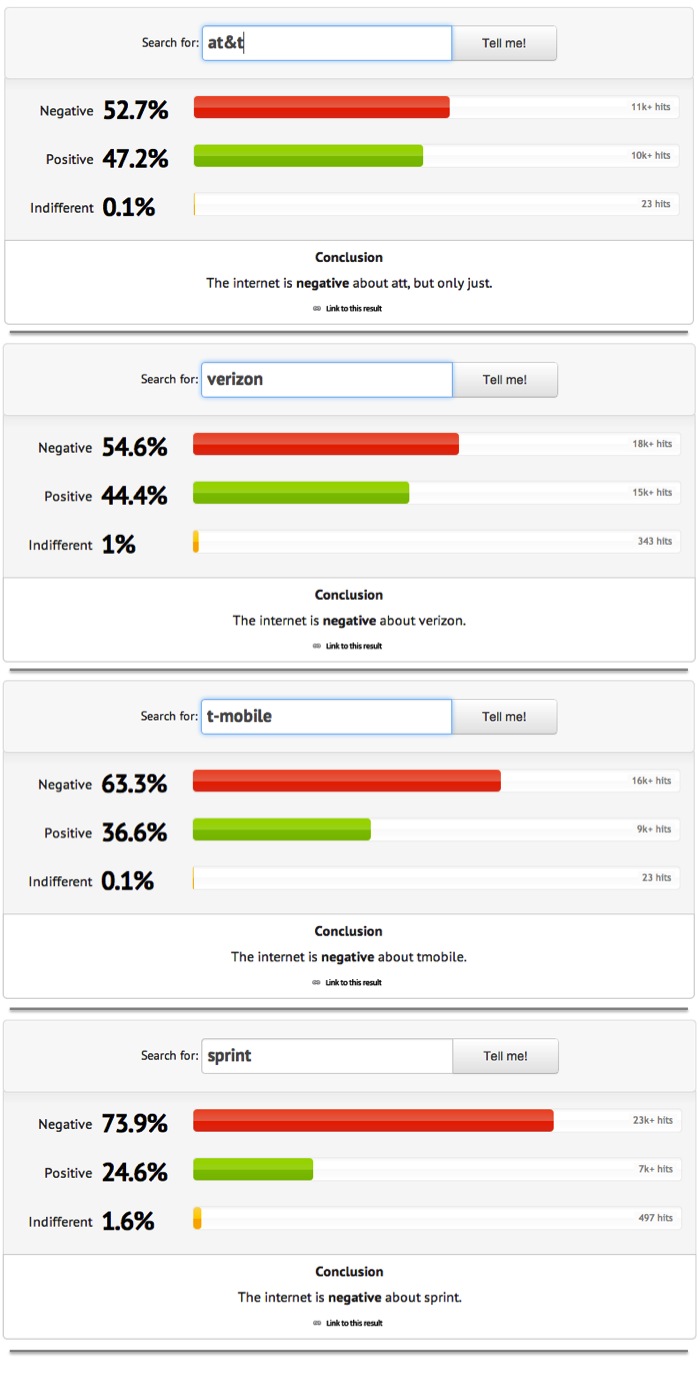Today, I went to a town hall lead by AT&T’s VP of research, Chuck Kalmenak. Chuck’s talk really painted the larger picture of research at AT&T and our priorities as a group. Also, it drove home for me that I’m now in industry and that I’m part of a larger company which makes it possible for me to do all the fun stuff that I do. So, today’s post is about public opinions of wireless communication providers, like AT&T.
I recently came across “What Does The Internet Think” which is a website that searches based on associative sentences to understand the general sentiment towards a particular search. This is obviously not an infallible approach, but I think that it’s a cool way to get a general lay-of-the-land. So, I searched for the 4 biggest wireless communication providers in the U.S.: AT&T, Verizon, Sprint, and T-Mobile. All-together these four providers represent 294.1 million U.S. subscribers. Here are the results, sorted from best to worst:
For me, this was good news and bad news. The good news is that I work for the best wireless provider and I’d like to think that I am or will be part of that success. The bad news is that even though the Internet was least negative about AT&T, it was still negative. Why is there no love for any of the mobile providers? What can we do better than what we’re doing right now?

